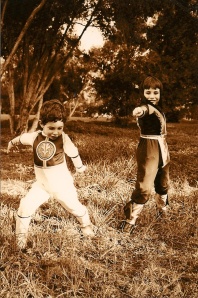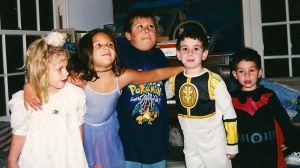 Narcissism is a widely used term in our society, and it is also widely misunderstood. We typically think of someone who is “narcissistic” as being vain and self-centered, but if we recall the ancient myth from which the term comes, it is about a beautiful youth who has no idea who he is. While Narcissus does fall in love with his own reflection in the water, and stays there transfixed until he grows roots and becomes a Narcissus plant, the key point is not about self-love, it is about absolute lack of self.
Narcissism is a widely used term in our society, and it is also widely misunderstood. We typically think of someone who is “narcissistic” as being vain and self-centered, but if we recall the ancient myth from which the term comes, it is about a beautiful youth who has no idea who he is. While Narcissus does fall in love with his own reflection in the water, and stays there transfixed until he grows roots and becomes a Narcissus plant, the key point is not about self-love, it is about absolute lack of self.
When it comes to healthy development, children require a lot of “mirroring” in their early years. The term “mirroring,” helps us understand that parents’ reactions serve as akin to a mirror to children. The pre-verbal infant doesn’t understand that mommy is a separate other with separate feelings so much as they look, in her eyes, into a mirror of themselves; if mommy is delighted, baby learns that they themselves are delightful, but if mommy is depressed the child mistakenly learns that they are depressing. And if we are interested in our children, they learn that they are interesting (which, of course, they are—and deserve to know). Now if a child learns that they are interesting, delightful, adequate, etc. they are generally able, as they develop, to calm down and take an interest in others, to participate in the world and to form meaningful and loving relationships.
Around the ages of three, four and five children like to play imaginary games of power and grandiosity. This is healthy narcissism where kids play at being all powerful so that they can cope with feelings of being powerless. Their seemingly grandiose fantasy behavior makes sense when we put ourselves in a child’s shoes (or footed pjs) and notice how the people we depend on, and who make all the rules, tower over us as literal giants with tremendous power (and, often enough, unpredictability). Kids at this stage love to be power rangers, ninjas and pretty princesses (my kids could hardly be pried out of their superman capes and ninja masks at that age). But if kids are indulgently allowed to be pretend super-heroes at this age, and parents do not negate them, children do calm down and put away the capes… eventually.
 On the other hand, if we are hurt in the early stages of our lives, we fail to gain “healthy narcissism” and instead develop “wounded narcissism.” This, like footed pajamas, does not look good on grown-ups. The wounded narcissist does make everything about himself or herself, but because they are so unsure of themselves and their adequacy. Often these people need to appear better than others because secretly they fear that they are worse than others. And when the wounded narcissist happens to be one’s parent, later therapy is often in order as the child of such wounded parents often struggle with low self-esteem. Thus narcissism can result in “inflation” where people are very touchy about any perceived disrespect, but in can also result in “deflation,” (as one writer put it, “I’m the piece of poop that the whole universe revolves around”).
On the other hand, if we are hurt in the early stages of our lives, we fail to gain “healthy narcissism” and instead develop “wounded narcissism.” This, like footed pajamas, does not look good on grown-ups. The wounded narcissist does make everything about himself or herself, but because they are so unsure of themselves and their adequacy. Often these people need to appear better than others because secretly they fear that they are worse than others. And when the wounded narcissist happens to be one’s parent, later therapy is often in order as the child of such wounded parents often struggle with low self-esteem. Thus narcissism can result in “inflation” where people are very touchy about any perceived disrespect, but in can also result in “deflation,” (as one writer put it, “I’m the piece of poop that the whole universe revolves around”).
The take-away here, is that narcissists are wounded, not arrogant. If you love a grown-up narcissist, you already know that their elixir is attention (but like water through a sieve, it’s never enough); this is a therapy issue, but it’s one that must be suggested carefully and with more compassion than words. But if you are parenting a healthy narcissist (i.e. you have kids younger than six), then lavish attention and interest and trust that this is how you make a sieve into a sturdy vessel that can later hold love and be put to good use in the world.
Kids look adorable in footed pajamas, and they also look adorable in all manner of dress up fantasy costumes. Most of us didn’t get perfect parenting, but our kids represent a chance to heal by giving what we may not have gotten. It stings a little, and exhausts a lot, but it nourishes us and brings us happiness like nothing else can.
So let’s dedicate today to paying a little extra attention to our kids, to listening more than talking, to being interested more than interesting. And please, talk to me about whatever’s on your mind as a parent—I’m interested.
Namaste, Bruce



{ 7 comments… read them below or add one }
this makes me think a lot of Winnacott and and also Lacan…thanks. A very interesting essay.
I love Winnicott and I am very intrigued by Lacan as well. Thanks so much for commenting. Hope you’ll stay a part of this and share more of what’s on your mind as a parent.
Only one thought here…My God, that is a cute Picture!!!
I’m not a parent myself yet but want to be and want to be a good one. This article helped me understand my own parents a little better – and helped me feel compassion instead of anger. Thanks Bruce.
And thanks, Jamie, for taking the time to share your comment.
This was a peek into the world of narcissisim not from a parenting perspective but rather from the adult child of a wounded narcissis. I just discovered my mother is and always has been a wounded narcissist. What a rough road it has been but nice to have validation that there is not enough attention in the world for her. It is like living with a vampire for which there is no transfusion available.
Yes this can be so terribly painful even as we grow-up and can still never satisfy or fill the colander that may be a narcissistic parent. Trust that you are not alone in this pain (just look at our narcissistic world), but we might hope to turn ourselves into beings who can contain and understand our children, even if this too can be painful (giving what we did not ourselves get).
Here’s to a less narcissistic, less wounded and more compassionate world. All Good Wishes, BD
{ 3 trackbacks }